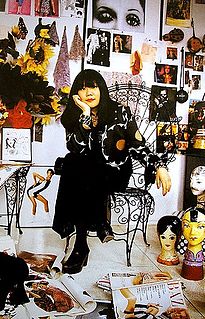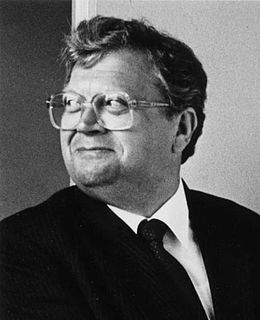A Quote by Johann Gottlieb Fichte
What sort of philosophy one chooses depends, therefore, on what sort of man one is; for a philosophical system is not a dead piece of furniture that we can reject or accept as we wish; it is rather a thing animated by the soul of the person who holds it.
Related Quotes
Nobody else can really begin to sort out for you what to accept and what to reject in terms of what wakes you up and what makes you fall asleep. No one else can really sort out for you what to accept - what opens up your world - and what to reject - what seems to keep you going round and round in some kind of repetitive misery.
And as I stumbled onto Eastern philosophy and Buddhism, it was the first time I had ever read any sort of philosophy that really made a tremendous amount of sense. What I liked that was missing from my experience of Christianity growing up was a sort of acceptance, a sort of being OK with being imperfect and not focusing on the sin.
Philosophy aims at the logical clarification of thoughts. Philosophy is not a body of doctrine but an activity. A philosophical work consists essentially of elucidations. Philosophy does not result in 'philosophical propositions', but rather in the clarification of propositions. Without philosophy thoughts are, as it were, cloudy and indistinct: its task is to make them clear and to give them sharp boundaries.
I've always been a very rebellious, philosophical person, so my mother set the foundation for my appreciation for nature and my empathy for other people. But then, being a sort of rebellious, philosophical thinker, I'm always looking for new ways to shake things up. So I feel like I'm really lucky to be alive in a time where there's so much opportunity to disrupt and shake it up. It's sort of a combination between that and having the foundation that my mother gave me.
It's a funny thing when you think you're dead. You're not terrified of it anymore. There's a sort of a epiphany to religious thing; it's not sort of church-based, but you end up with a serenity which you didn't have before, and I just simply enjoy it. It really does sound stupid, but I've got to tell you it's made my life.
...as I reject the old time beliefs, it is not a matter of countering belief with belief, rather I can challenge the efficacy of old beliefs with sound arguments. We believe in nature and that human progress depends on the domination of man over nature. There is no conscious power behind it. This is our philosophy.
The conduct of a man, who studies philosophy in this careless manner, is more truly sceptical than that of any one, who feeling inhimself an inclination to it, is yet so over-whelm'd with doubts and scruples, as totally to reject it. A true sceptic will be diffident of his philosophical doubts, as well as of his philosophical conviction; and will never refuse any innocent satisfaction, which offers itself, upon account of either of them.







































